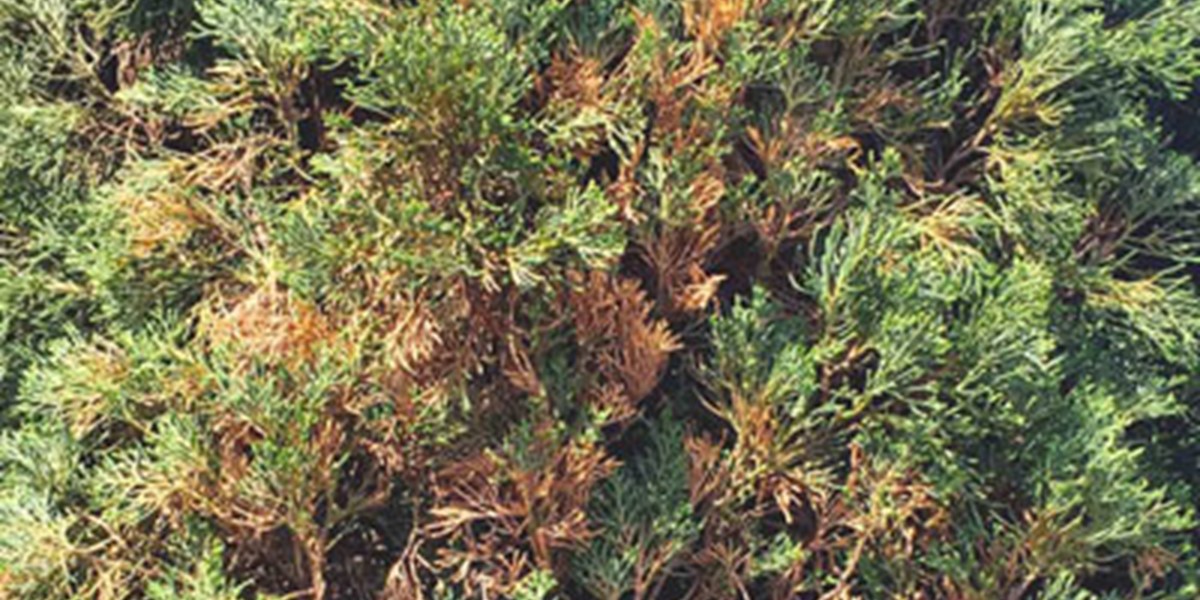

Published May 1, 1999 By KEVIN BASSETT and RUSSELL PETERS
Spider mites are a pest that attack a wide variety of our shade trees and landscape plant material.
Mites are technically not an insect but more closely related to ticks or spiders. They are extremely small and difficult to see with the naked eye. The damage, however, is fairly easy to spot once you become familiar with the symptoms spider mites produce.
A flecking or stippling appearance on the top side of foliage of affected plant material is the most common symptom produced by spider mites. Often a dusty or grey cast is apparent on damaged foliage. Many of the warm season mites produce toxins during feeding on plant tissue, which can cause yellowing and leaf drop when populations are high. Spider mites have a short life cycle and reproduce every 5 (five) days and often all stages from eggs to adult are present at any one time.
Daytime temperatures over 75 degrees are favorable for spider mite activity and reproduction. In the north Texas area, we normally experience mite activity from May through September. Early control measures, prior to the development of wide spread visual damage, is critical.
Mites will commonly over-winter on trees and shrubs and over-wintering populations can be greatly reduced with dormant oil applications. This manages the mites present on the plant at the time of application and helps reduce early season outbreaks. Additional control measures are necessary with approved miticides. A series of spray applications are made from May through August to assure good control.
Trees and shrubs in our area which are commonly attacked by spider mites include: Bald Cypress, Live Oak, Cedar Elm, Magnolia, Althea, Azalea and Boxwood.
Contact your Consulting Arborist for more information and pricing of our spray programs at (972) 442-1524.
